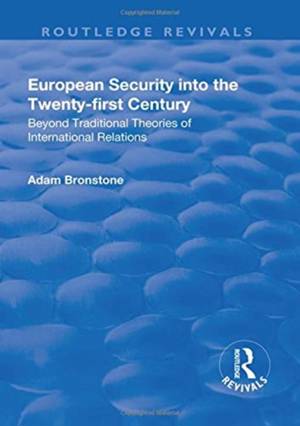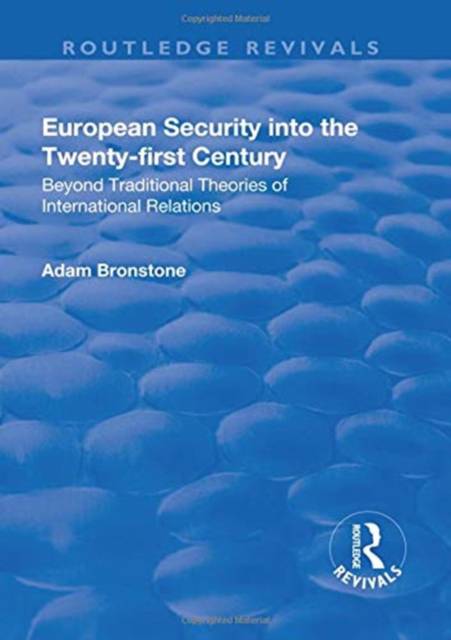
- Afhalen na 1 uur in een winkel met voorraad
- Gratis thuislevering in België vanaf € 30
- Ruim aanbod met 7 miljoen producten
- Afhalen na 1 uur in een winkel met voorraad
- Gratis thuislevering in België vanaf € 30
- Ruim aanbod met 7 miljoen producten
Zoeken
European Security Into the Twenty-First Century
Beyond Traditional Theories of International Relations
Adam Bronstone
€ 155,45
+ 310 punten
Omschrijving
This title was first published in 2000: Both NATO and the European Union are in the early stages of enlargement processes that will see both organizations expand to include a number of former Communist countries from Central Europe. Simultaneously, these processes ignore and exclude the interests and concerns of Russia and Turkey, respectively in the name of European security. Are both of these processes condemned to fail because of what was left out, rather than put in, to the organizational mix of both alliances? Is the leadership of NATO, for example, making the single largest, and costliest, blunder in the history of the organization? And is this being done, as well as that by the European Union, in part because of narrowly-held theoretical perspectives that define security in the most minimalist terms? Too often these processes of enlargement are discussed both out of context and in seclusion from one another, as if neither affects the other in any way, shape or form. This work brings together both processes of enlargement in order to examine whether or not similar mistakes are being made by both organizations, with grave practical consequences. This work will also examine both processes of enlargement from a critical perspective in that it will challenge the theoretically-driven conventional wisdoms of both processes. By doing so, this work will illustrate the need to go beyond these theories of International Relations and advocate the use of a number of non-traditional and very alternative positions that will assist one in developing richer, more comprehensive and inclusive explanations and understandings of these processes, as well as the field of International Relations in general. This work seeks to challenge the current state of International Relations, broadly defined, on its own ground in the hopes of presenting and developing, something newer and exciting for tomorrow.
Specificaties
Betrokkenen
- Auteur(s):
- Uitgeverij:
Inhoud
- Aantal bladzijden:
- 266
- Taal:
- Engels
- Reeks:
Eigenschappen
- Productcode (EAN):
- 9781138736146
- Verschijningsdatum:
- 21/12/2017
- Uitvoering:
- Hardcover
- Formaat:
- Genaaid
- Afmetingen:
- 151 mm x 219 mm
- Gewicht:
- 489 g

Alleen bij Standaard Boekhandel
+ 310 punten op je klantenkaart van Standaard Boekhandel
Beoordelingen
We publiceren alleen reviews die voldoen aan de voorwaarden voor reviews. Bekijk onze voorwaarden voor reviews.











